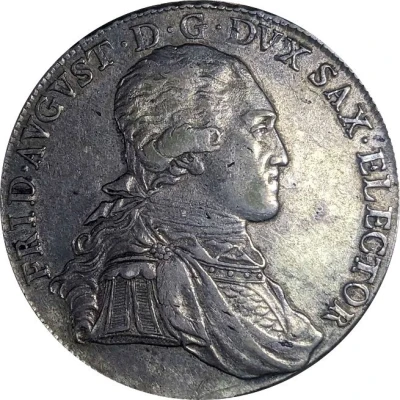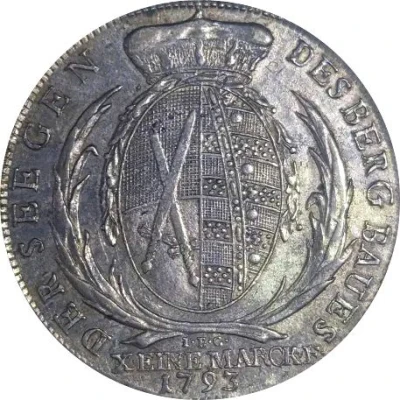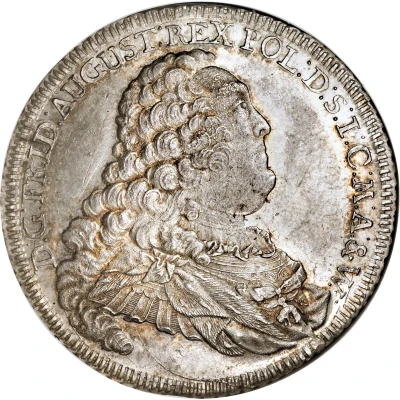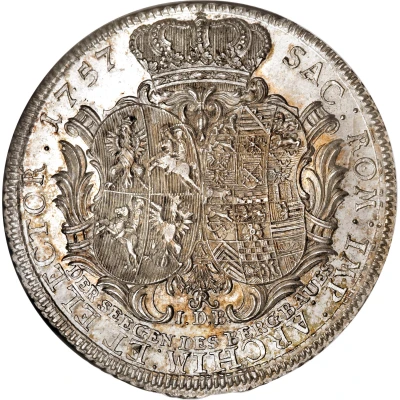
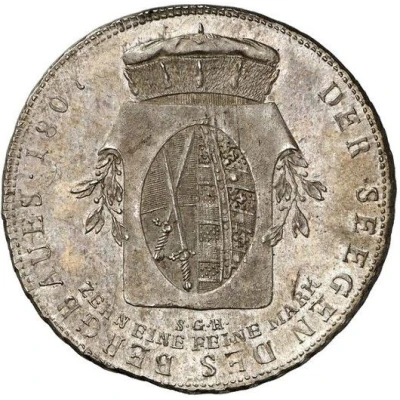

© Fritz Rudolf Künker GmbH & Co. KG, Osnabrück and Lübke & Wiedemann KG, Leonberg
1 Thaler - Frederick August I Ausbeute - Pattern
1807 year| Silver | 27.81 g | - |
| Issuer | Electorate of Saxony (Albertinian Line) (German States) |
|---|---|
| Prince elector | Frederick Augustus III (Friedrich August III) (1763-1806) |
| Type | Pattern |
| Year | 1807 |
| Value | 1 Thaler |
| Currency | Thaler (1493-1805) |
| Composition | Silver |
| Weight | 27.81 g |
| Shape | Round |
| Technique | Milled |
| Orientation | Medal alignment ↑↑ |
| Demonetized | Yes |
| Updated | 2024-10-05 |
| Numista | N#316147 |
|---|---|
| Rarity index | 95% |
Reverse
Saxonian coat of arms in a cartouche with laurel branches crowned with electoral hat.
Script: Latin
Lettering:
DER SEGEN DES BERGBAUES 1807
S G H
ZEHN EINE FEINE MARK
Edge
Leaf pattern
Comment
This extremely rare pattern Thaler was minted as early as 1806. It still bears the title of Elector of the Regent. On December 11, 1806, Saxony was elevated to the Kingdom by Napoleon's grace by the Treaty of Posen. Therefore, this pattern of the mint master Samuel Gottlieb Helbig was rejected.Interesting fact
One interesting fact about the Pattern 1 Thaler - Frederick August I (Ausbeute - Pattern) 1807 from Electorate of Saxony (Albertinian Line) (German States) made of Silver weighing 27.81 g is that it was minted during a time of great economic and political change in Europe. The coin was issued during the reign of Frederick August I, who was the Elector of Saxony and King of Saxony from 1763 to 1827. During his reign, Saxony underwent significant economic and industrial development, and the coinage of the region was modernized to reflect these changes. The Pattern 1 Thaler was one of the coins minted during this time, and it features an elegant design that showcases the artistic and technical advancements of the period. Despite its age, the coin remains a popular collector's item among numismatists today, and its historical significance makes it a fascinating piece of European history.
